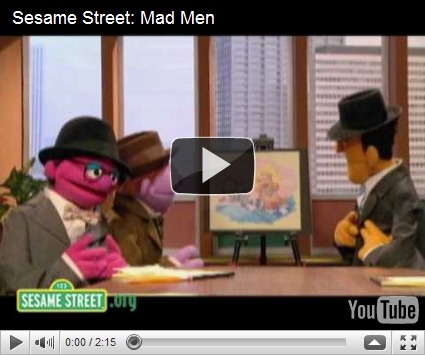In a rare ripple in our otherwise sea of marital bliss, my wife became rather annoyed with me last night.
It was the final night of summer vacation, and I was lamenting the fact that I had not accomplished my goal of writing my next book in eight weeks. Hoping to use my vacation to write full time, I thought that I could easily accomplish this goal, and while I failed, I still think it would have been possible had I applied myself more. An unexpected revision of my third book and my book tour took more time from my schedule than expected, and I found it surprisingly difficult to pry myself away from my cuter-by-the-day daughter. But perhaps with more work in the late evenings or early mornings, and maybe an earlier institution of my plan to sleep less would have allowed me to realize success.
After listening to this diatribe, Elysha fired back, declaring that my original goal was ridiculous and that I had worked more than enough during the summer and should be satisfied with the result. Furthermore, she explained, I should not be annoyed or angry with myself for not reaching my goal, because doing so was not fair to me or to her.
I understood where she was coming from, and it turns out that she has supporters.
In Leo Babauta‘s latest book, a simplicity manifesto in the age of distraction, in a chapter on “letting go of goals,” he writers:
(Goals) are artificial — you aren’t working because you love it, you’re working because you’ve set goals.
They’re constraining — what if you want to work on something not in line with your goals? Shouldn’t we have that freedom?
They put pressure on us to achieve, to get certain things done. Pressure is stressful, and not always in a good way.
When we fail (and we always do), it’s discouraging.
But most of all, here’s the thing with goals: you’re never satisfied. Goals are a way of saying, “When I’ve accomplished this goal (or all these goals), I will be happy then. I’m not happy now, because I haven’t achieved my goals.” This is never said out loud, but it’s what goals really mean. The problem is, when we achieve the goals, we don’t achieve happiness. We set new goals, strive for something new.
I don’t agree with much of what he writes in regards to goal setting, but it’s his last argument that I quibble with the most, because it goes against everything that I believe.
My life philosophy goes something like this:
My hope is to always live in a perpetual state of content dissatisfaction.
Sure, I want to be happy, but I never want to find myself thoroughly satisfied with my position in life either. I wish to remain on a lifelong mission of realizing my dreams, which requires a never-ending list of unfulfilled dreams.
Friends (and perhaps my wife) have found this philosophy both bizarre and impossible, since one cannot be happy and dissatisfied. Yet I think I have somehow achieved this result. Yes, I am disappointed and annoyed with myself for not having finished my manuscript, but these feelings of discontentment do not preclude me from being happy overall.
Is this so hard to understand?
Recently, I’ve been talking about my plan to retire after twenty-five years of teaching. If I was able to make this happen, I would be retiring from the profession in thirteen years at the ripe old age of 52. When I tell my older friends about my plan, many tell me that they are already worrying about how they will fill their days after retirement and could not imagine leaving the workplace in their early fifties.
But here’s the thing:
I live in a perpetual state of content dissatisfaction. I have accomplished my childhood dream of teaching and writing for a living. But these are not my only goals. Since childhood, new goals have been piling up, and while I have continued to tackle many of them, there are some that still await my attention. Retiring from teaching does not mean retiring from life. It simply means opening a new chapter in my life, and I have more than enough unfulfilled goals and dreams with which to fill it. My list of ideas is a mile long, and the only difficulty that I anticipate is determining where to start.
And who knows? After twenty-five years of teaching, I may find myself wanting to teach another twenty-five, unable to give up the job that I love so much. But my interests are so varied and my desires so great that leaving the profession after a quarter century seems entirely possible as I enter my twelfth year in the classroom.
Babauta is correct when he says that when we achieve a goal, we set a new goal and strive for something new. But he is incorrect in assuming that this results in unhappiness.
Content dissatisfaction, perhaps. And yes, therefore happiness, too. At least for me.




